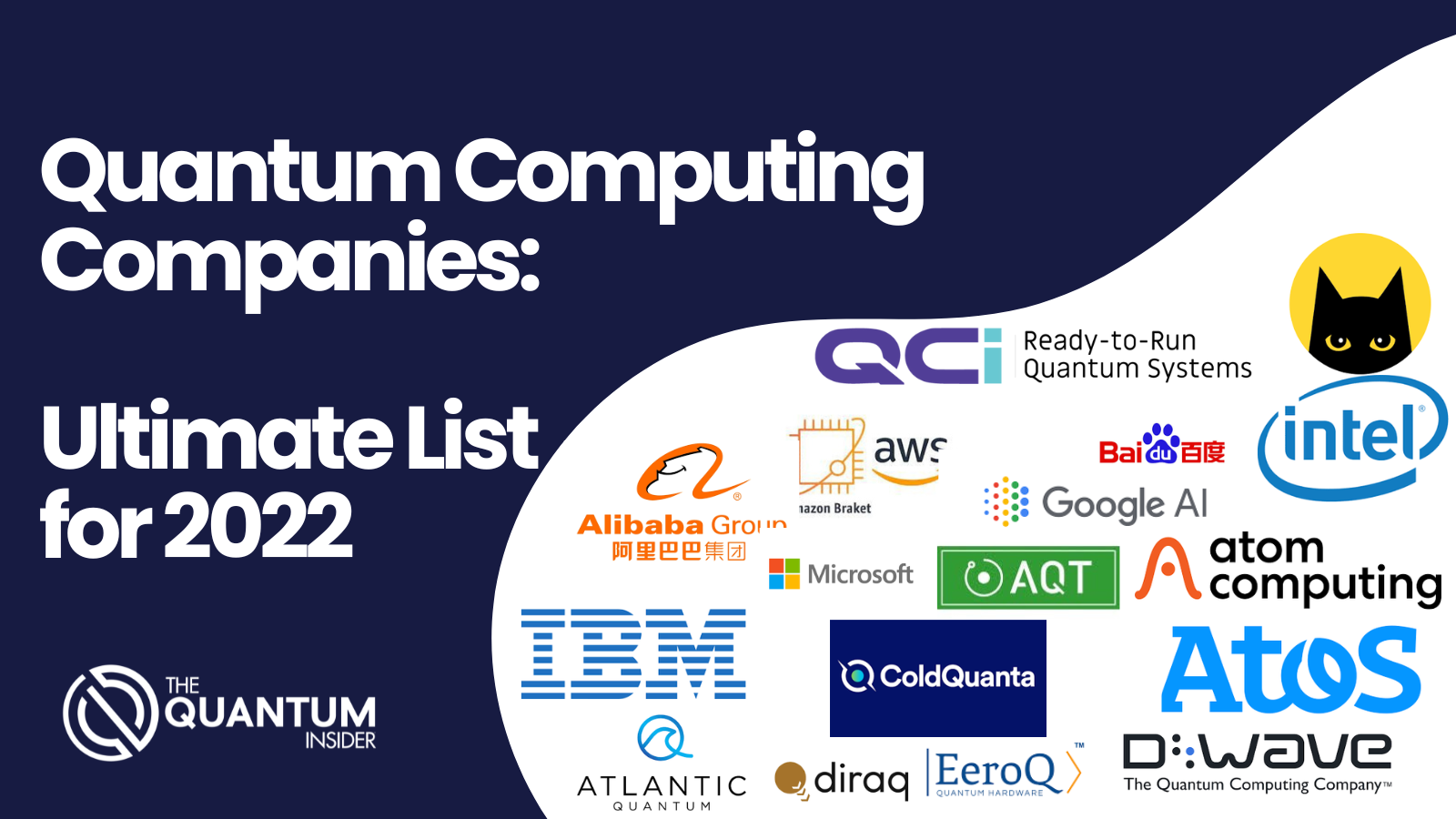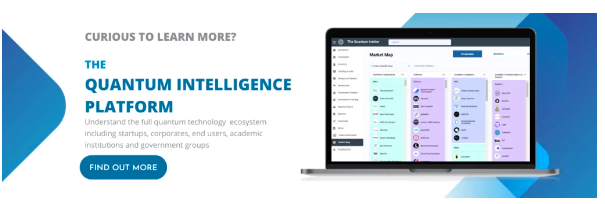Quantum Computing Companies are popping up all over the world as the race to build a working quantum computer heats up. Quantum computers have the potential to revolutionize computing, and these companies are at the forefront of that race. But who are these Quantum Computing Companies? Let’s take a look.
What is Quantum Computing?
Quantum computing (QC) is expected to enable different approaches to computational challenges in industries like healthcare, cybersecurity and the financial sector, yet — unlike other hard tech verticals like artificial intelligence (AI) or virtual reality (VR) — quantum computing seems to be a black box for most other than the specialists working in the industry. Few understand what a quantum computer can do, or what differentiates it from classical computers.
By utilizing specialized hardware and software, quantum computers can tackle tasks such as artificial intelligence, machine learning, and cryptography that are currently beyond the capabilities of conventional computing. For that matter, quantum computing companies develop technologies to enable this cutting-edge technology to become more accessible and useful in everyday life.
The quantum computing industry is rapidly expanding with new innovations being created every day. With that said, let’s take a look at the rise in the number of quantum computing companies over the last 20 years.

The Rise of Quantum Computing Companies
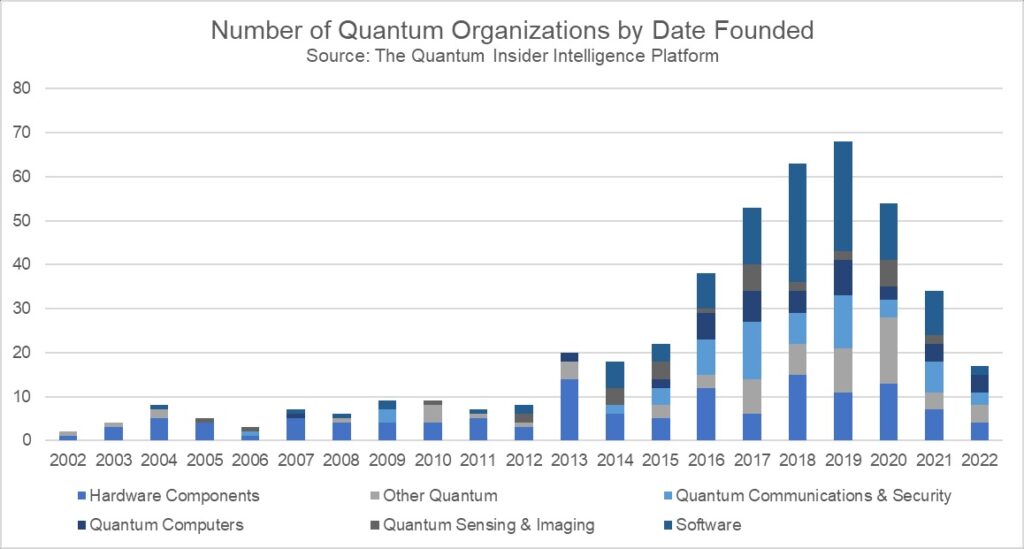
The taxonomy implemented for the classification of the quantum computing companies has three distinct sections, “Quantum Computing Giants”, “Hardware-focused Quantum Computing Companies” and “Software-focused Quantum Computing Companies”. Leveraging the data from our Quantum Intelligence Platform, we have included close to one hundred quantum computing companies in our review. As our Quantum Intelligence Platform has more than 600 organizations in its database, it was inevitable that we would have to omit many of the players across the supply chain. In this article, we have only focused on quantum computing leaders in both hardware and software, as well as the important startups in the industry whose intellectual property is promising.
Furthermore, if you’re interested in diving deeper into the world of quantum computing companies, we have published an in-depth article that explores some of the best quantum computing young companies: 73 Quantum Computing Startups Challenging Industry Leaders.
As quantum computing becomes more mainstream, a richer ecosystem of suppliers, hardware, and software companies will appear. When they do, The Quantum Insider will, as always, cover them in news stories, as well as include them within our platform. For brevity’s sake, we have also excluded the growing industry of quantum security-related players, though some of these have been highlighted in both the hardware and software sections when appropriate. All the listed companies are in alphabetical order.
Top Quantum Computing Companies
Quantum Computing Giants
Of the four major US-founded players in the quantum computing (QC) market consisting of Google, IBM, Microsoft, and AWS Braket (Amazon), only IBM has a legacy in technological innovation that stretches back more than a century. The other three, Google, Microsoft and AWS, have a shorter history in computing. However, though IBM is arguably ahead in terms of hardware and software development in the quantum computing space, the trio chasing IBM are not far behind and are sure to have a positive impact.
Other big players too (which we have included), aware of the huge impact quantum computing and quantum computing companies will have across the board in the mid-to-long term, are setting up their own quantum computing R&D programs in an effort not to get left behind when the industry passes the noisy intermediate-scale quantum (NISQ) era and reaches fault-tolerant capacity and, ultimately, the holy grail of quantum advantage and a new epoch of computation.
1. IBM
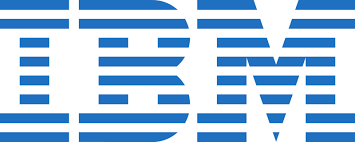
Founded in Endicott, New York in 1911 by businessman Charles Ranlett Flint as the Computing-Tabulating-Recording Company (CTR), IBM is one of the world’s tech giants.
“Our goal is to achieve quantum advantage as soon as possible. I don’t like to focus so much on dates for specific items without considering instead an entire roadmap to make it possible. To achieve quantum advantage, we need to both increase the performance of the processors and develop a better understanding of how to deal with errors and program a quantum computer.”
— Jay Gambetta, Vice President, IBM Quantum Lab
In the quantum sphere, the IBM Quantum Composer and the IBM Quantum Lab (previously known collectively as the IBM Quantum Experience) form an online platform allowing public and premium access to cloud-based quantum computing services provided by IBM Quantum. This includes access to a set of IBM’s prototype quantum processors, a set of tutorials on quantum computation and access to an interactive textbook. As of February 2021, there are over 20 devices on the service, six of which are freely available to the public. This service can be used to run algorithms and experiments and explore tutorials and simulations around what might be possible with quantum computing.
The IBM Quantum Lab is led by Vice President, Jay Gambetta, an IBM Fellow.
For a slightly deeper dive into IBM, read our article covering the history of IBM’s focus on quantum here.
Visit company’s profile page.
2. Google Quantum AI

Along with IBM, Google Quantum AI is a leading player in full-stack capabilities in quantum computing. Google Quantum AI is advancing the state of the art of quantum computing and developing the tools for researchers to operate beyond classical capabilities.
The nerve centre for Google’s quantum activities is The Quantum Artificial Intelligence Lab, a joint initiative between Google, NASA and the Universities Space Research Association, it was founded in 2013 and was the one responsible for the announcement it had achieved quantum supremacy back in October 2019.
Google’s software and hardware are specifically designed for building novel quantum algorithms to help solve near-term applications for practical problems. These include Cirq, a Python software library for writing, manipulating, and optimizing quantum circuits, and then running them on quantum computers and quantum simulators; OpenFermion, a library for compiling and analyzing quantum algorithms to simulate fermionic systems, including quantum chemistry; and TensorFlow Quantum (TFQ), a quantum machine library for rapid prototyping of hybrid quantum-classical ML models.
Led by Engineering Director, Hartmut Neven, the goal of Google Quantum AI is to pioneer research on how quantum computing might help with machine learning and other difficult computer science problems. The lab is hosted at NASA’s Ames Research Center. Part of Google’s strategy included its quantum roadmap.
Visit company’s profile page.
3. Microsoft
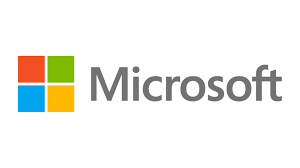
Another of the big players, Microsoft is the provider of the world’s first full-stack, open cloud quantum computing ecosystem, featuring solutions, software and hardware delivered through Azure.
Although Microsoft was founded in 1975, the roots of Microsoft’s research into quantum had two teams interested in quantum computing, the QuArC team based in Redmond, Washington, directed by Krysta Svore. This team explored the construction of quantum circuitry. The second, located in Santa Barbara and led by Michael Freedman, was Station Q, which was researching topological quantum computing.
In September 2017, during a Microsoft Ignite Keynote, Microsoft announced the imminent release of a new quantum computing programming language, Q#, which was eventually rolled out in December of that year, as part of the company’s Quantum Development Kit.
However, Microsoft’s quantum program hasn’t gone without controversy: in 2018 a Microsoft-led team of scientists — headed by physicist Leo Kouwenhoven at the Delft University of Technology in the Netherlands — retracted a high-profile paper that the company touted as a key breakthrough in the creation of practical quantum computing, claiming to have found evidence of Majorana particles, long-theorized but never conclusively detected.
“Microsoft has taken this very risky but high reward approach in trying to make a qubit which on the theory side looks like the very best qubit you can get. But the challenge was that nobody has really seen these Majorana zero modes in real life. But we have done that now, and that’s super exciting. We have to continue to evolve our engineering capabilities, but it really looks like there is a path towards scalable quantum computing now.”
— Peter Krogstrup, Scientific Director, Microsoft’s Quantum Materials Lab in Lyngby, Denmark
At Build 2019, Microsoft announced that it is open sourcing the Quantum Development Kit, including its Q# compilers and simulators.
Microsoft quantum initiative is steered by Julie Love, Partner and Product Leader for Quantum Computing, with Bettina Heim currently leading the Q# language development effort.
4. AWS Braket

Amazon Braket is a fully managed quantum computing service designed to help speed up scientific research and software development for quantum computing.
“We felt there was enough of a community to really get the most out of a quantum platform, so that’s why we launched Braket. It’s designed to get people up and running quickly, removing the barriers to playing with this technology and fundamentally trying to be a catalyst for innovation.
Fundamentally, AWS all about enabling third parties to build other services and build applications on top of the platform — and that’s exactly the same with quantum computers.”
— Richard Moulds, General Manager, Amazon Braket (AWS Quantum Computing Service)
Led by Simone Severini, AWS Director of Quantum Computing and Professor of Physics of Information at University College London, Amazon Braket is a service that provides access to different types of quantum computers to customers via the cloud. Available since 2020, the AWS Braket service allows anyone to open an account, log in and pay as you go using the quantum cloud service that leverages quantum annealers from D-Wave, IonQ’s gate-based ion-trap processors, the gate-based superconducting processor offering from Rigetti Computing and Oxford Quantum Circuits, and the gate-based photonic quantum computers from Xanadu.
Other features include a hardware-agnostic developer framework, which simplifies the process of designing and executing quantum algorithms, fully managed Jupyter notebooks, pre-built algorithms and tutorials, a choice of simulation tools, and many other interesting possibilities.
5. Alibaba Group

Partnering with the Chinese Academy of Science, Alibaba Group’s cloud computing subsidiary has established the Alibaba Quantum Computing Laboratory in Shanghai, China. A member of the international quantum computing community the Alibaba Group’s quantum efforts embrace the idea of open-source projects in the space
In charge of all this is Yaoyun Shi, Head of Quantum Lab, where he leads projects that include the Alibaba Cloud Quantum Development Platform (ACQDP) — a simulator-driven development tool for quantum algorithms and quantum computers.
6. Atos Quantum

Atos Quantum is a group within the French multinational company Atos that specializes in quantum technology. Atos Quantum has released a product called the Atos Quantum Learning Machine, a classical computer that can simulate a quantum system using anywhere between 30 and 40 qubits, depending upon the specific configuration. Associated with this product, Atos Quantum provides a universal quantum assembly programming language called AQASM along with other software to allow researchers, engineers, and students to develop and experiment with quantum software.
In the field of quantum hybridization, Atos Quantum is the only player already enabling several applications — in the areas of chemistry, such as catalysis design for nitrogen fixation, and for the optimization of smart grids. Atos is also involved in two additional quantum hybridization projects, which are currently being launched.
Atos is one of the first quantum computing companies to adopt a hardware-agnostic approach in developing quantum-powered supercomputers, as well as providing end-user applications. Atos’ ambition is to be a major player in multiple domains among which are quantum programming and simulation, the next-generation quantum-powered supercomputers, consulting services, and of course, quantum-safe cybersecurity.
“Atos launched the Atos Quantum Learning Machine (QLM) in 2017, a quantum appliance emulating almost all target quantum processing units with abstractions to connect to real quantum computing hardware when available. We have been very successful with the QLM in large academics or research centers on all continents. In 2021, there was a shift of many commercial companies starting to work on real use cases, and the QLM is the best platform to start these projects without waiting for hardware to be available at scale.
— Eric Eppe, Head of Portfolio & Solutions, HPC & Quantum, Atos
Atos plays a central role in European-funded quantum computing projects. It is cooperating with NISC QPU makers to develop new technologies and increase their effectiveness in a hybrid computing scenario. This includes, but is not limited to, hybrid frameworks, containerization, parallelization, VQE, GPU usage and more.
In charge is Eric Eppe, Head of Portfolio & Solutions, HPC & Quantum. Atos also boasts The Quantum Advisory Board, made up of universally recognized quantum physicists that include Alain Aspect, Professor at the Institut d’Optique Graduate School, Université Paris-Saclay and at Ecole Polytechnique, Institut Polytechnique de Paris, Artur Ekert, Professor of Quantum Physics at the Mathematical Institute, University of Oxford and Founding Director of the Centre for Quantum Technologies in Singapore and Nobel laureate in Physics, Serge Haroche, Professor emeritus at the Collège de France.
Visit company’s profile page.
7. Baidu
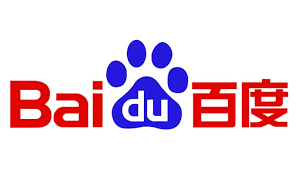
Like Alibaba, Baidu comes from China. Its quantum program includes the launch of an institute for quantum computing dedicated to the application of quantum computing software and information technology. Called the Baidu Quantum Computing Institute led by Professor Duan Runyao, who had been the director of the Centre for Quantum Software and Information at the University of Technology Sydney (UTS), Baidu’s intention is to see quantum technology useful across several verticals like artificial intelligence (AI) and machine learning (ML).
“With Qian Shi and Liang Xi, users can create quantum algorithms and use quantum computing power without developing their own quantum hardware, control systems, or programming languages. Baidu’s innovations make it possible to access quantum computing anytime and anywhere, even via smartphone. Baidu’s platform is also instantly compatible with a wide range of quantum chips, meaning ‘plug-and-play’ access is now a reality.”
— Runyao Duan, Director of the Institute for Quantum Computing, Baidu
Baidu says it has designed a quantum hardware-software integration solution called Liang Xi. The system can plug into Qian Shi and other third-party quantum computers, including a 10-qubit superconducting quantum device and a trapped ion quantum device developed by the Chinese Academy of Sciences.
Visit company’s profile page.
8. Intel
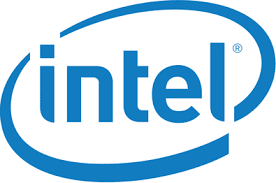
Like IBM, Intel has a storied history in the semiconductor industry, having been founded in Mountain View, California, in 1968 by Gordon Moore of “Moore’s law” fame and Robert Noyce, a physicist and co-inventor of the integrated circuit.
Leading the charge is Intel’s Director of Quantum Hardware, James Clarke. Intel Labs, the R&D arm of the company, is leveraging its expertise in high-volume transistor manufacturing to develop ‘hot’ silicon spin-qubits, much smaller computing devices that operate at higher temperatures. Second, the Horse Ridge II cryogenic quantum control chip provides tighter integration. And third, the cryoprober enables high-volume testing that is helping to accelerate commercialization.
Intel is working on both superconducting and spin qubits, though research on superconducting seems to be limited to their academic affiliations at Qutech (Delft university), whereas spin qubits are the main focus with activities at Qutech and in-house.
“Another big differentiator between Google, IBM and Intel is the type of qubit we are studying. Our qubit looks a lot like a conventional transistor, and conventional transistors are extremely smaller than a superconducting qubit (used by Google and IBM) — our spin qubit technology is roughly a million times smaller than a superconducting qubit. So the hope is that we could scale this technology a lot better than the competition.”
— James Clarke, Director of Quantum Hardware, Intel
Visit company’s profile page.
Top Hardware-Focused Quantum Computing Organizations
1. Alice & Bob

French quantum computing company, Alice & Bob is working towards building an error-corrected, fault-tolerant quantum computer. Its research is focused on self-correcting superconducting quantum bits, and cat qubits.
Alice & Bob’s technology detail is developing self-correcting superconducting quantum bits, enabling fault-tolerant quantum computing. In March 2022, the business announced that it had solved one of the major error correction hurdles for qubits (bit flips). In this work, they demonstrated that their cat-qubit stabilization scheme was compatible with macroscopic bit-flip times: increasing resilience to bit-flip errors from a previous record of a few milliseconds to 2 minutes.
“In order to fully realize the promise of quantum computing, we have to get a grip on handling quantum errors. Surface codes drive the field toward a scaling bottleneck. Cat qubits enable a roadmap using linear code, with dramatically reduced overhead. […]”
— Théau Peronnin, CEO Alice & Bob
This quantum computing startup, based in Paris, was founded in 2020 by Raphaël Lescanne and Théau Péronnin. On the funding front, Alice & Bob has raised a total of $33 million.
Visit company’s profile page.
2. Alpine Quantum Technologies

With headquarters in Innsbruck, Austria, Alpine Quantum Technologies (AQT) develops trapped ion quantum devices by working on building a full quantum computer using trapped ion technology.
Beyond state-of-the-art applications such as factoring, simulations on high-energy physics or quantum chemistry, AQT ion-trap technologies offer a clear roadmap to large-scale quantum computers, from scalable ion-trap processors to photonic networks connecting quantum computers.
“If you’ve ever done a tour of a lab with a superconducting quantum computer, you’ll have noticed these sort of ‘oil barrel’ hanging from the ceiling making a ‘tchk, tchk, tchk’ sound. That’s the compressor, running with helium, because it needs to be cold. Our trapped ion project is room temperature. So, besides the vacuum can which is closed, the entire device is standing in a normal office and you can touch all the components and nothing is going to freeze or do anything to you. We are still working on the prototype, but it seems like we can run the entire quantum computer from a normal power plug in the wall. And the next thing is: because the power consumption is low and it works at room temperature, it’s easy to envision our device as being mobile.”
— Thomas Monz, CEO, AQT
With some $34 million raised to date, AQT was founded in 2017 by Professor Rainer Blatt, Dr Thomas Monz and Professor Peter Zoller.
Visit company’s profile page.
3. Anyon Systems

Anyon Systems builds and deploys on-premise quantum computers based on superconducting qubits. Their vertically integrated offering includes proprietary cryogenics, quantum electronics and software stack.
In June 2022, Anyon Systems announced the sale of their second quantum computer, to a high-performance computing center
Founded in 2014, Anyon Systems is the first Canadian company manufacturing gate-based quantum computing platforms for universal quantum computation. The company is headquartered in Montreal, Canada.
Visit company’s profile page.
4. Atlantic Quantum
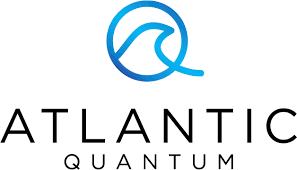
Atlantic Quantum develops scalable quantum computers to tackle the world’s hardest computational challenges.
The team at Atlantic Quantum uses new types of noise-protected qubits to improve coherence times by an order of magnitude compared to conventional approaches. This, together with extensible control schemes, allows for scaling the quantum processor to the size required for real-world applications. They develop and provide control electronics for cutting-edge devices, for high quantum gate accuracies with a control system that scales.
“We believe fault-tolerant quantum hardware is the key to making significant progress in quantum computing. While the market is still maturing, overcoming current hardware limitations is critical — we are focused on removing today’s technical obstacles and accelerating real-world applications of quantum computing.”
— Bharath Kannan, CEO, Atlantic Quantum
Founded this year by a team of scientists and researchers from one of the world’s top quantum computing labs, the Engineering Quantum Systems (EQuS) group at MIT led by Prof. William D. Oliver and Principal Research Scientist Simon Gustavsson, Atlantic Quantum announced a $9 million seed investment in July led by The Engine, the venture firm spun out of MIT that invests in early-stage Tough Tech companies.
Visit company’s profile page.
5. Atom Computing

A Berkeley, California company, Atom Computing — founded in 2018 by Benjamin Bloom and Jonathan King — uses individual atoms to build scalable quantum computers.
Its quantum computers use individually controlled atoms that can be controlled optically, without wires, and provide a path towards truly scalable quantum computing. They have a 100-qubit QC called Phoenix. This offers an array of highly stable qubits, which users can build quantum circuits with readily available quantum software developer toolkits.
“Atom Computing designed and built our first-generation machine, Phoenix, in less than two years and our team was the fastest to deliver a 100-qubit system. We gained valuable learnings from the system and have proven the technology. […]”
— Rob Hays, CEO & President, Atom Computing
To date, Atom Computing has raised $80 million in funding with the likes of VCs Prelude Ventures, Venrock, Prime Movers Lab, and Innovation Endeavors backing the company to break new ground in quantum computing.
Visit company’s profile page.
6. Bleximo

Another Berkley-based quantum company, Bleximo is building full-stack, superconducting, application-specific quantum computers, co-designing algorithms and hardware to deliver the first quantum advantage.
“On the hardware and software side, our strength lies in having a talented mix of engineers — focused on operational execution and issues like scalability, manufacturability and reproducibility — working alongside scientists geared up for ground-breaking applied research.”
— Fabio Sanches, Head of Quantum Engineering, Bleximo
Founded in 2017 by Alexei Marchenkov, Bleximo’s superconducting qubit-based quantum accelerators, (qASIC), work in conjunction with conventional powerful computers to tackle problems that are impractical or even impossible to solve on conventional digital computers alone. The company’s initial focus is on providing quantum accelerators for simulating the structure and properties of molecules and chemical reactions. Bleximo is also focusing on cryogenic hardware solutions for their superconducting quantum processors packaging and shielding.
The company has raised $9 million in funding to date.
Visit company’s profile page.
7. C12 Quantum Electronics
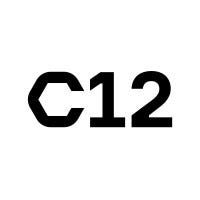
C12 Quantum Electronics aims to develop reliable quantum processors, thanks to an elementary material: the carbon nanotube. Its technology claims to drastically reduce the error rate, making its platform a prime candidate for noisy intermediate-scale quantum applications. The core technology is the result of over ten years of research on the use of carbon nanotubes for quantum electronics.
Based in Paris, France, C12 was founded in 2020 by twin brothers Matthieu and Pierre Desjardins and has raised some $10 million in funding to date.
Visit company’s profile page.
8. ColdQuanta
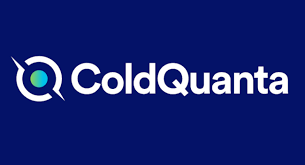
ColdQuanta sells laser-cooled and ultra-cold atom-enabled quantum technologies, develops and designs instruments, components, and systems for scientific and industrial quantum applications such as cold atom experimentation, quantum simulation, quantum information processing, atomic clocks, and inertial sensing. The company has also developed a cloud-based quantum computer utilizing neutral atoms, called Hilbert, which will reach 100 qubits, operating at room temperatures and promising superior error correction, high qubit connectivity, long coherence times, and high gate fidelity.
“To me, what’s really attractive about ColdQuanta is the modality that we’re using, the fundamental toolkit, as I say, is something I’ve been working with my entire life, it’s lasers and scanners and receivers. And, as I like to say, we’re gonna lasso some atoms and put them in some cool configurations and watch what they do under certain conditions. And from that vast information comes out of it.”
— Scott Faris, CEO, ColdQuanta
Based in Boulder, Colorado, ColdQuanta was founded in 2007 by Dr. Dana Anderson and others. In May of this year, ColdQuanta acquired quantum software company Super.Tech. ColdQuanta has raised $79 million in outside funding.
9. D-Wave

One of the first quantum computing companies established, D-Wave designs and manufactures quantum computing and superconducting electronics. (Check out our opinion in TQD D-Wave Article) Founded in 1999 by Haig Farris, Geordie Rose, Bob Wiens, and Alexandre Zagoskin, the Burnaby, Canada-based company quantum annealers and gate-based quantum computers facilitate finding the optimum solution to certain optimization problems.
“From its inception more than 20 years ago, D-Wave has focused on delivering quantum computing products and services that provide the fastest path to practical, real-world applications with customer value. […]”
— Alan Baratz, CEO, D-Wave Systems
Having raised some $293 million in funding. In August of this year, D-Wave went public via DPCM Capital, Inc. (“DPCM Capital”) (NYSE: XPOA), a special purpose acquisition (SPAC) company.
Visit company’s profile page.
10. Diraq
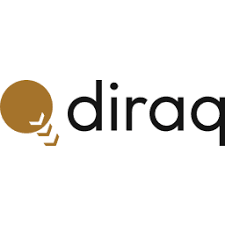
Diraq is focused on building fault-tolerant quantum computers. Its patented CMOS qubits are the same size as today’s transistors and use the same manufacturing. Diraq maintains 28 patents and patent applications across major jurisdictions. Over the next ten years, the business aims to progress its chips from prototypes to silicon quantum processor chips at nanometre scales.
“Diraq aims to redefine scalable quantum computing and bring practical commercial applications to the world via billions of qubits on single chip, compared to the hundreds of qubits that exist today. The company is configuring as an end-to-end quantum computing provider — to provide quantum hardware and software as a full stack, cloud accessible service.”
— Andrew Dzurak, CEO, Diraq
The Sydney, Australia-based new venture — which came out of stealth this May — was founded by its CEO Andrew Dzurak, a professor at UNSW Sydney.
Visit company’s profile page.
11. EeroQ

EeroQ is building a quantum computer chip that uses electrons on superfluid helium. Its technological detail is electrons on helium quantum computers. These may offer several advantages over other QC models, such as scalability, potentially faster gate operations, and because it promotes a less noisy quantum environment, longer coherence times. Longer coherence times are critical to create stable, less error-prone quantum calculations.
“Electrons on helium is a novel technology and very different from other qubit platforms, and it’s quite fun to describe. In our approach to building a quantum computer, the qubit is an electron trapped in vacuum above the surface of superfluid helium, using microwaves for quantum logic gates. This is one of the cleanest systems known to exist, so while it’s challenging to work with it offers a somewhat natural “home” for quantum computation.”
— Nick Farina, CEO, EeroQ
Based in New York City, this quantum computing company was founded in 2016 by Nick Farina, Faye Wattleton, Professor Johannes Pollanen, Dr. David Rees, David Ferguson, and Hannah Parnes.
EeroQ raised $7.2 million in a Seed funding round in August 2022, with investors such as Unbound, B Capital, Alumni Ventures Group, and others involved in the round.
Visit company’s profile page.
12. IQM

Shifting over to Europe now we have IQM Finland, a young company founded in 2018 by Jan Goetz, Juha Vartiainen, Kuan Yen Tan, and Mikko Möttönen that builds scalable hardware for universal quantum computers, focusing on superconducting technology.
“Today’s chips shortage has exposed just how dependent the world is on semiconductor manufacturers in Asia. Quantum processors give us an opportunity to learn from this and become self-reliant first, and a global provider for quantum chips in the future.”
— Jan Goetz, CEO, IQM
IQM is developing its second-generation quantum processors based on proprietary technology that allows them to significantly speed up the clock speed of quantum processors. Its aim is to demonstrate the fastest qubit reset and readout in the industry. IQM adopts a unique approach to implementing increasing levels of specialization to build robust, application-specific, quantum computers. Its focus is on building computers for research and supercomputing centers (in contrast to many players who are looking to go down the ‘cloud’ route).
IQM has raised $246 million in funding to date and is backed by the likes of Tencent Holdings, World Fund, Tesi (Finnish Industry Investment Ltd), Matadero QED, and the European Investment Bank.
Visit company’s profile page.
13. IonQ

IonQ’s mission is to build the world’s best quantum computers to solve the world’s most complex problems, transforming business, and society. It has developed a trapped ion quantum computer. The Company currently has two quantum computers (which it describes as leading) and you can access it through Amazon Braket. In May 2022, the company announced IonQ Forte, its latest generation of quantum systems. Forte is expected to be initially available for select developers, partners, and researchers in 2022 and is expected to be available for broader customer access in 2023. The system features acousto-optic deflector (AOD) technology, which allows IonQ to dynamically direct laser beams that drive quantum gates towards individual ions. The AOD is designed to minimize noise and overcome variations in ion position, improving fidelity in long chains of trapped ions, which is crucial for scaling quantum computers. In addition, key parameters, including qubit and gate configuration, can be tailored to user needs, creating a truly dynamic and flexible system.
“IonQ Forte is further proof that high-performance quantum computers can be designed and built so both qubit count and gate fidelity improve simultaneously. We expect that this will lead to quantum computers with increasing algorithmic qubit numbers that will enable the search for solutions to the most complex problems of our time. IonQ’s quantum systems, including Aria and Forte, are at the forefront of achieving practical utility. The most impactful quantum computing applications will come to light when leading innovators seeking new ways to tackle their formidable problems get to work with the best systems, and customize them for their unique needs. We can’t wait to get these systems in people’s hands.”
— Jungsang Kim, CTO, IonQ
Based in College Park, Maryland, IonQ was founded in 2015 by Chris Monroe and Jungsang Kim with $2 million in Seed funding from New Enterprise Associates, a license to core technology from the University of Maryland and Duke University. Since that time, the company has raised $684 million, though $600 million of that came from the company’s SPAC in 2021).
Visit company’s profile page.
14. Nord Quantique
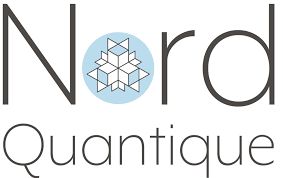
Nord Quantique develops superconducting circuits that can mitigate errors on every individual qubit. The company claims it provides a faster pathway to fault-tolerant quantum computing. Nord Quantique is developing bosonic codes implemented with superconducting circuits, as bosonic systems naturally provide a richer encoding space, making it a lot easier to prevent noisy interactions to impact the system and produce errors, thus preserving quantum information. Superconducting circuits provide a complete toolbox for engineering high-performance bosonic codes.
“We embrace the great technological challenges that high-performance quantum computing demands — and we’re on the path to develop ground-breaking innovations.”
— Julien Camirand Lemyre, President & CTO, Nord Quantique
With headquarters in Sherbrooke, Canada, Nord Quantique was founded in 2020 by Julien Camirand Lemyre and Philippe St-Jean and has raised a respectable $7 million in funding.
Visit company’s profile page.
15. ORCA Computing
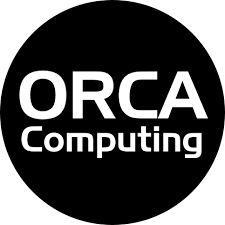
Based in London, UK, ORCA Computing was founded in 2019 by Richard Murray, Cristina Escoda, Josh Nunn, and Ian Walmsley and is developing a modular quantum computing platform using photonic technology.
“One of the most interesting properties of photonic qubits is that they are ‘in flight’. You can pulse a source so that it produces multiple photons in a chain within a single length of optical fibre”. A highly efficient source could produce a chain of a million photons, although it would not be error corrected, our early results show that this could be an attractive method to scale the quantum system.”
— Richard Murray, CEO, ORCA Computing
Having raised nearly $17 million in funding, ORCA’s core offering is its ability to store photons in its unique quantum memory. This acts as a buffer, overcoming the core challenge of photonic quantum computing; namely the inherently probabilistic nature of generating qubits. In June 2022, the company announced it is partnering with the UK’s Ministry of Defence to develop a quantum computer to explore applications in defence.
Visit company’s profile page.
16. Origin Quantum
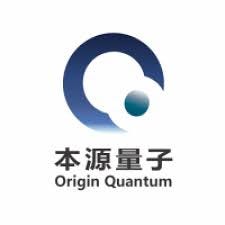
Origin Quantum offers multiple Quantum Computing solutions. Its full-stack QC solutions include the development of a two-qubit chip based on quantum dot technology, as well as a six-qubit chip that relies on superconducting technology. In addition, the business has released Qpanda 2.0, a development kit that can be utilized to run experiments and build quantum circuits on quantum computers, along with VQNet (Machine Learning framework), QRunes (quantum programming language), and Qurator (integrated development environment). The business is working on a suite of offerings across the quantum computing stack which include control systems and instruments, cryogenic equipment, room temperature hardware such as amplifiers, and applications in quantum chemistry (ChemiQ), fluid dynamics (OriginQ QCFD), and option strategy and portfolio optimization.
Based in Hefei, China, Origin Quantum was founded in 2017 by Guang-can Guo and Guo-ping Guo and has raised an incredible $163 million in funding to date.
Visit company’s profile page.
17. Oxford Ionics

Founded in 2019, Oxford Ionics is creating high-performance quantum computers by combining trapped ions qubits with proprietary noiseless electronic qubit control technology.
Founders Chris Ballance and Tom Harty, Oxford Ionics is developing high-performance quantum computers by associating an ion-trap model with its Noiseless Electronic Qubit Control technology, which aims to reduce quantum noise (the amalgam of errors and interferences created by variations in the photon signature and the electromagnetic fields inside the device). The combination of Oxford Ionics’ unique electronic qubit control (EQC) technology with Infineon’s world-leading engineering and manufacturing capabilities, as well as expertise in quantum technology, will lay the foundations for the industrial production of QPUs offering hundreds of qubits within the next five years. The goal is to move quantum computing technology out of the research lab into real industrial solutions.
“The great challenge in quantum computing is scaling whilst improving performance. There are technologies that can be fabricated at scale but don’t perform, and there are technologies that perform but don’t scale. Our electronic control is uniquely placed to do both. Working with Infineon and its mature and flexible semiconductor process, allows us to speed up the accessibility of a commercial QPU. Due to our market-leading error rates, these processors need up to 10,000 times fewer qubits to solve useful problems than other technologies.”
— Chris Ballance, Co-Founder, Oxford Ionics.
The quantum computing startup has raised just over $3 million in outside money since it was founded.
Visit company’s profile page.
18. Oxford Quantum Circuits
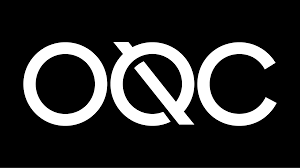
Another Oxfordshire, UK-based company, Oxford Quantum Circuits’ (OQC) quantum computer is a complete functional unit, including the control system, the hardware and the software. Its core IP is the Coaxmon (a type of qubit) that has a three-dimensional architecture that brings key componentry off-chip for increased scalability.
“Our vision is to build a truly scalable, flexible quantum computer. We’re building the quantum computer itself, as well as the qubits, based on technology that was developed by Dr. (Peter) Leek at the University of Oxford, where the company started. And that’s really the core of what we do.”
— Ilana Wisby, CEO, OQC
The company has raised north of $50 million in funding and was founded in 2017 by CEO, Ilana Wisby.
Visit company’s profile page.
19. PASQAL

PASQAL is one the first quantum computing companies to develop a quantum computer using arrays of neutral atoms. This was originally based on the work by Antoine Browaeys and Thierry Lahaye at Institut d’Optique (IOGS, CNRS), which has been demonstrating the simulation of many-body problems intractable for classical High-Performance Computers. The Fresnel analogue quantum computer has been chosen in the framework of the pan-European HPCQS project, to achieve their goal of deploying and coordinating a cloud-based European federated infrastructure, tightly integrating two quantum computers, each controlling 100+ qubits, as well as achieving quantum HPC hybrid applications designed for end-users.
“Running algorithms on Pasqal’s neutral-atom hardware opens the door to unique capabilities no other quantum system offers.”
— Georges-Olivier Reymond, CEO, PASQAL.
Based in Palaiseau, France, PASQAL was founded in 2019 by Georges-Olivier Reymond, Christophe Jurczak, along with Professor Alain Aspect — known as the “father of the second quantum revolution” — Dr. Antoine Browaeys, and Dr. Thierry Lahaye.
In a financial context, the company has raised $33 million in funding, backed by the European Innovation Council, Runa Capital, Daphni, BPIFrance, Quantonation, Eni Next, and TPY Capital.
Visit company’s profile page.
20. Photonic Inc
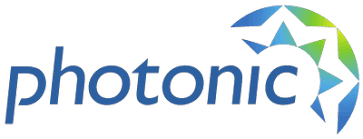
Like D-Wave, Photonic Inc is based in Burnaby, Canada and is a company focused on designing and manufacturing silicon-based, high-quality, quantum technologies. Photonic’s qubit is actually an electron spin — effectively they use photonics to wire these together.
With its origins in the Silicon Quantum Technology Lab at Simon Fraser University, Photonic was founded in 2019 by Paul Terry and Stephanie Simmons.
Visit company’s profile page.
21. planqc

planqc is a neutral atom quantum computing company that emerged out of stealth in June 2022. It is the first early-stage company to emerge from the Munich Quantum Valley. planqc’s founding team of Alexander Glätzle, Sebastian Blatt, Johannes Zeiher, Lukas Reichsöllner, Ann-Kristin Achleitner, and Markus Wagner combines decades of international research on neutral-atom quantum technologies.
“Our atoms are more than a million times colder than deep space and over a thousand times colder than superconducting qubits used by IBM or Google, and yet we can run our computers in a room-temperature environment due to the near-perfect isolation of our qubits from the surrounding. We already routinely trap and control more than 2000 atoms in our optical lattice simulators at MPQ.”
— Johannes Zeiher, Co-founder, planqc
The $4.7 million the company raised in April of this year, will help the team develop its quantum technology built on the precision of atomic clocks, quantum gas microscopes and high-speed Rydberg gates.
Visit company’s profile page.
22. PsiQuantum
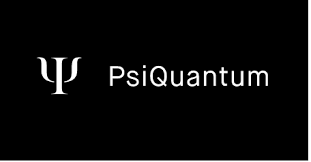
PsiQuantum is making qubits with photons (single particles of light). These are sent down pathways placed on a silicon chip. Mirrors bounce the photons into a state of entanglement. Fusion measurements act as gates. The company claims this method is the only practical way in the short term to build a quantum computer with enough qubits to be commercially useful.
“We use a superconducting single-photon detector, which can achieve the necessary efficiencies without a ton of development. It’s worth noting those detectors run in the ballpark of 4 Kelvin. So liquid helium temperature, which is still very cold, but it’s nowhere near as cold as milli-Kelvin temperatures required for superconducting qubits or some of the competing technologies.”
— Peter Shadbolt, CSO, PsiQuantum
The company, founded in 2016 by Jeremy O’Brien, Terry Rudolph, Peter Shadbolt, and Mark Thompson, is based in Palo Alto, California. As far as funding goes, PsiQuantum has raised an astonishing $665 million over four rounds, the most recent — a $450-million Series D — in July of this year.
Visit company’s profile page.
23. QUDOOR

A Beijing, China-based company, QUDOOR whose technological detail includes quantum key communication terminal equipment. The company is market-oriented and focuses on transforming quantum science technology from laboratory prototypes into practical commercial products.
Established in 2018, the company has raised north of $7 million in funding to date.
Visit company’s profile page.
24. Qilimanjaro

Qilimanjaro’s integrated hardware and software team focuses at this time on coherent quantum annealing high-quality qubit architectures to deliver scalable app-specific quantum processors and services, with easy-to-use cloud access to effectively address complex optimization and ML problems. In the short term, it provides services for businesses to become quantum-ready, particularly on quantum algorithms, quantum simulation and classical/quantum computer approaches. It has closed significant customer contracts in its first year of operation and has become a key contributor to the European Commission’s AVaQus FET-Open H2020 project on quantum annealing. Qilimanjaro is a spin-off from the Barcelona Supercomputer Center (BSC), the University of Barcelona (UB) and the Institute of High-Energy Physics (IFAE).
Based in Barcelona, Spain, this quantum computing company was founded in 2019 by Artur García-Sáez, Jordi Blasco, José Ignacio Latorre, Pol Forn-Díaz, and Victor Canivell.
Visit company’s profile page.
25. QuEra
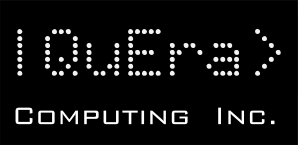
QuEra Computing uses ground-breaking research on neutral atoms, developed at Harvard University and the Massachusetts Institute of Technology, as the basis for a world-leading scalable, programmable quantum computer solution. The business describes itself as a full stack provider (it works on algorithms too).
“There is an enormous opportunity to make headway on some of today’s most critical –and presently impossible — problems that impact nearly every one of us. With our first machine, we are excited to begin to demonstrate what quantum computers can do for humanity.”
— Alex Keesling, CEO, QuEra
Based in the Boston metropolitan area, QuEra was founded in 2019 by Mikhail Lukin, Markus Grenier, Vladan Vuletic, Dirk Englund and Nathan Gemelke and has raised a healthy $17 million in funding.
Visit company’s profile page.
26. Quandela

Quandela was founded in 2017 by Niccolo Somaschi, Pascale Senellart and Valerian Giesz and is a spinoff of the Centre for Nanoscience and Nanotechnology at the French National Center for Scientific Research (CNRS).
The company’s headquarters are located in Palaiseau, a southern suburb of Paris, and it develops solid-state sources of quantum light for quantum applications. Quandela is known for being the originator of Prometheus, the world’s first photonic qubit generator with broad application domains including quantum cryptography, quantum computation and quantum sensors. The company also offers a cybersecurity enhancement solution with a two-qubit quantum processor and will make its first six-qubit NISQ quantum computer available on the cloud from autumn 2022.
As well the hardware, this year Quandela released its photonic quantum computing software platform, Perceval.
“Given the recent technological advances in the development of solid-state quantum light emitters, it is time to explore the full potential of this technology for large–scale quantum computing. Quandela is one of the international leaders in the technology, with all the resources to boost further developments and integrate the blocks needed to build computing platforms in a modular way.”
— Niccolo Somaschi, CTO, Quandela
To date, the company has raised some $18 million in funding.
Visit company’s profile page.
27. QuantWare
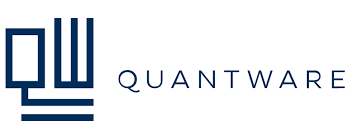
Based in Delft, the Netherlands, QuantWare develops and sells quantum hardware including QPUs and attenuators. As of July 2021, it offered a 5-qubit QPU and a travelling wave parametric amplifier. In March 2022, the business announced its 25-qubit contralto QPU. The Contralto also offers unique customizability, with the option to add chip features as desired, such as asymmetric squid junctions, Purcell filters, and custom qubit topology. Meanwhile, dedicated drive and flux lines offer full qubit control. These features were previously only available to a handful of laboratories and very big tech companies.
QuantWare was founded in 2021 by Alessandro Bruno and Matthijs Rijlaarsdam and has raised over $9 million in funding over two rounds, the latest being a $7.8-million Grant round received from the European Innovation Council in June 2022.
Visit company’s profile page.Visit company’s profile page.
28. Quantinuum
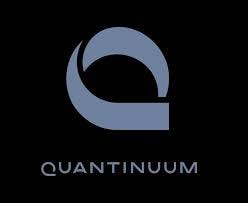
Quantinuum is the product of a combination between Cambridge Quantum Computing (CQC), a British quantum software and OS company, and Honeywell Quantum Solutions (HQS), which has been carved out of US parent company Honeywell (specializes in building Ion Trap quantum computers).
The business combines trapped-ion quantum hardware and open-source software, creating a full-stack quantum computing company. In June 2022, Quantinuum announced a major upgrade to its System Model H1 technology that includes expanding to twenty fully connected qubits and increasing the number of quantum operations that can be completed in parallel. It also increased the number of gate zones from three to five, enabling the H1–1 to complete more quantum operations simultaneously and allowing increased parallelization in circuit execution. Cambridge Quantum Computing — CQC combines expertise in quantum software, specifically a quantum development platform (t|ket / TKET), enterprise applications in quantum chemistry (EUMEN), quantum machine learning (QML), and quantum augmented cybersecurity (IronBridge/Origin). They also released an open-source software toolkit for Natural Language Processing on Quantum Computers call Lambeq. The company has released InQuanto, a python-based quantum chemical software platform that performs chemistry algorithms on current quantum hardware. Research for InQuanto began under EUMEN and was built on TKET. They also offer licensing for access to the Honeywell System H1 trapped-ion quantum computer.
“Quantinuum’s trapped–ion quantum computing roadmap is designed around continuous upgrades, enabled our flexible architecture and our precision control capabilities. This combination provides for outstanding, first–of–its–kind achievements that help accelerate the entire industry.”
— Tony Uttley, President & COO, Quantinuum
Founded in 2021, Quantinuum is led by CEO, Ilyas Khan — who founded Cambridge Quantum in 2014 — and President and Chief Operations Officer, Tony Uttley, the founder of Honeywell Quantum Solutions where he served as President.
Visit company’s profile page.
29. Quantum Brilliance
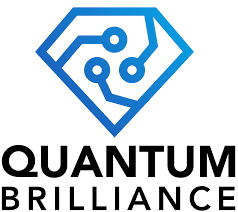
Quantum Brilliance (QB) develops a quantum computing platform that operates at room temperature without the need for complex cooling systems. They have developed a two-qubit diamond quantum ‘accelerator’ which uses synthetic diamonds and runs at room temperature in any environment.
Based in Canberra, Australia, Quantum Brilliance was founded in 2019 and has raised $11 million in funding.
Visit company’s profile page.
30. Quantum Circuits
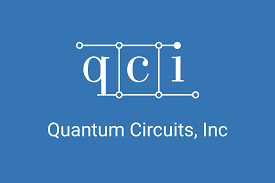
Quantum Circuits (QCI) is developing full-stack quantum computing with superconducting devices and a modular and scalable architecture. Based in Madison, Wisconsin, QCI has raised $18 million in funding.
The company was founded in 2015 by Michel Devoret, Luigi Frunzio and Robert Schoelkopf, three world-leading experts in quantum devices and information processing from the Department of Applied Physics at Yale University.
Visit company’s profile page.
31. Quantum Motion

Quantum Motion is a quantum computing company developing a scalable array of qubits based on ubiquitous silicon technology, leveraging CMOS processing to achieve high-density qubits which can scale up to large numbers and tackle practical quantum computing problems.
“We’re hacking the process of creating qubits, so the same kind of technology that makes the chip in a smartphone can be used to build quantum computers. It has taken 70 years for transistor development to reach where we are today in computing and we can’t spend another 70 years trying to invent new manufacturing processes to build quantum computers. We need millions of qubits and an ultra-scalable architecture for building them, our discovery gives us the blueprint to shortcut our way to industrial scale quantum chip production.”
— John Morton, Founding Director, Quantum Motion
Based in London, Quantum Motion was founded in 2017 by Professor Simon Benjamin from Oxford University and Professor John Morton from UCL. So far, the company has raised just short of $10 million in funding.
Visit company’s profile page.
32. Quantum Source
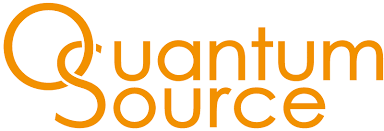
With headquarters in Rehovot, Israel, Quantum Source is working towards scaling quantum computers to millions of qubits through developments in photonic technology by developing a quantum processor through interlacing photons. Quantum Source will be the first funded Israeli company working on the qubit modality, which is touted to offer an alternative route to useful quantum computers. Their differentiated approach involves developing chips that can be manufactured without specialist facilities that do not need to operate with any cooling — a prerequisite for many other qubit modalities.
The company, founded in 2021 by Oded Melamed, Gil Semo, Dan Charash, and Professor Barak Dayan from the Weizmann Institute of Science, came out of stealth in July of this year with a $15 million Seed round.
Visit company’s profile page.
33. Rigetti Computing
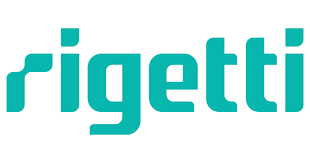
Rigetti Computing is a Berkeley, California-based developer of hardware and software for quantum computers. The business develops superconducting qubit computers and the software used to power them. The Rigetti Forest Software Development Kit includes pyQuil, the Rigetti Quil Compiler (quilc), and the Quantum Virtual Machine (qvm).
It also offers its quantum computers in the cloud through its Quantum Cloud Services platform. An 80-qubit Rigetti processor is available via Rigetti Quantum Cloud Services and AWS. It is the world’s first multi-chip quantum processor. In June 2022, Rigetti announced the launch of its 32-qubit Aspen-series quantum computer in the UK. The system, which is Rigetti’s first UK-based quantum computer, will be available to its UK partners over the cloud through Rigetti QCS.
“[…] we’ve reached a critical milestone in the emerging quantum advantage era. Our machines are now at a scale and speed where they can process the real-world data sets that underpin high-impact applications. We believe these systems give researchers and enterprises the best platform to pursue quantum advantage on real problems.”
— Chad Rigetti, CEO, Rigetti Computing
Founded by Chad Rigetti in 2013, Rigetti Computing has raised some $300 million in funding to date. In March of this year, the company went public via a Special Purpose Acquisition Company (SPAC) merger.
Visit company’s profile page.
34. SEEQC

SEEQC is developing a new approach to making quantum computing useful, via a fully Digital Quantum Computing solution that combines classical and quantum computing to form an all-digital architecture through a system-on-a-chip design that utilizes superconductive classical co-processing to address the efficiency, stability and cost issues endemic to quantum computing systems.
“Our multi-layer superconductive electronics chip fabrication facility is among the most advanced in the world. This facility powers the development and manufacturing of superconductors for customers today and is an important research and development facility for the commercially viable quantum computing systems of tomorrow.”
— John Levy, CEO, SEEQC
Based in Elmsford, New York, SEEQC was founded by the quartet of John Levy, Oleg Mukhanov, Matthew Hutchings, and Shu-Jen Han in 2019 and has raised $34 million in funding.
Visit company’s profile page.
35. Silicon Quantum Computing
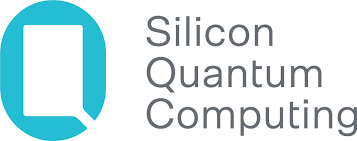
Silicon Quantum Computing (SQC) is a Sydney, Australia-based fresh business that aims to commercialize the research produced by the Australia Centre of Excellence for Quantum Computation and Communication Technology. It envisions a 10-qubit quantum integrated circuit prototype in silicon by 2023.
“We spent about five to ten years optimizing the manufacture of our qubits out of atoms in silicon, and realized the quality of the qubits was really outstanding.”
— Michelle Simmons, CEO, Silicon Quantum Computing
In June 2022, Silicon Quantum Computing announced its first quantum integrated circuit — the delivery of this atomic-scale integrated circuit, which operates as an analogue quantum processor, and comes less than a decade after the team’s 2012 declaration that it had fabricated the world’s first single-atom transistor and has been achieved two years ahead of schedule
A spinout from the University of New South Wales (UNSW), SQC was founded in 2017 by Michelle Simmons and has so far raised $65 million in outside funding.
Visit company’s profile page.
36. TuringQ

TuringQ focuses on developing optical quantum computer chips that can integrate large-scale photonic circuits based on lithium niobate on insulator (LNOI) photonic chips and femtosecond laser direct writing technology. The business was established in February 2021.
This young company has already released several products, such as TuringQ Gen 1, an integrated scientific research-grade optical quantum computer for commercial use, a 3D optical quantum chip, an ultra-high-speed programmable optical quantum chip, and other items. FeynmanPAQS is its first self-developed optical quantum computing simulation software for commercial use.
Based in Shanghai, China, TuringQ was founded in 2021 by Xianmin Jin and has raised close to $80 million in funding.
Visit company’s profile page.
37. Universal Quantum
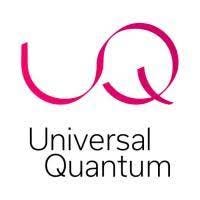
Universal Quantum is working on scalable trapped ion quantum computers. It is one of the few quantum computing companies that have developed technology based on trapped ions to carry out calculations using well-established microwave technology removing the need for a prohibitive number of laser beams. It substantially reduces the necessary cooling requirements, allowing it to operate at a much easier-to-obtain temperature of (-200C) which is critical in making quantum computers far more practical and capable.
“At Universal Quantum, we are focused on six technology pillars to reach the million-qubit scale. These are mild cooling technology, trapped ion qubits, electronic quantum gates, silicon microchip modules, electric field link modularity and a practical engineering focus.
Of course, the race is far from over as we try to reach the million-qubit scale — and it may not be a two-horse race between superconducting and trapped-ion qubits. Other companies are investigating alternative approaches — and they are all at different levels of maturity.”
— Unmesh Sahasrabuddhe, VP of Engineering & Product, Universal Quantum
Universal Quantum was founded in 2018 by Professor Winfried Hensinger and Dr. Sebastian Weidt and is headquartered in Brighton, the UK. The startup has raised more than $15 million in funding to date.
Visit company’s profile page.
38. Xanadu
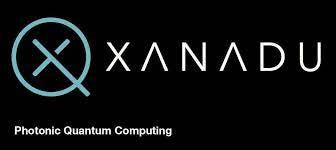
Xanadu is a Toronto-based quantum innovative company founded by Christian Weedbrook in 2016 that is a full-stack developer of quantum photonic processors and an open-source quantum software platform called Strawberry Fields.
The company has also developed Borealis, a programmable photonic quantum computer with 216 squeezed-state qubits that outperforms the best classical supercomputers at a specific task, available to people everywhere via Xanadu Cloud and Amazon Braket. In June of this year, Xanadu demonstrated quantum computational advantage using Borealis:
“We are thrilled to have deployed quantum computational advantage on the cloud publicly for the very first time for users around the world. This is another big milestone for quantum computing. And it shows the exceptional talent we have here at Xanadu as well as the ability for photonic quantum computers to scale up.”
— Christian Weedbrook, CEO, Xanadu
Xanadu has raised $131 million in funding and is backed or has been backed by the likes of Business Development Bank of Canada (BDC), Tim Draper, Bessemer Venture Partners, Sustainable Development Technology Canada, DARPA, Silicon Valley Bank, Golden Ventures, and the Creative Destruction Lab.
Visit company’s profile page.
Top Software-focused Quantum Technology Companies
1. 1QBit

1QBit develops general-purpose algorithms for quantum computing hardware. The business historically focused on NISQ-era applications but has increasingly moved its focus on providing enabling software across the stack. 1QBit is effectively now an incubation unit for other companies focused on quantum technology, having spun off Synthesise (medical technology solutions and an operator of distributed radiology, medical imaging, and laboratory clinics) and Good Chemistry (focuses on utilizing quantum computing for computational chemistry).
Founded in 2012 by Andrew Fursman and Landon Downs, the Vancouver, Canada-based company has raised north of $35 million in funding.
Visit company’s profile page.
2. Agnostiq

With headquarters in Toronto, Agnostiq is yet another Canada-based quantum software innovative company that was founded in 2018 by Edwin Tham, Elliot MacGowan and Oktay Goktas. To date, the company has raised $2.5 million in funding.
“When it comes to classical HPC, one of the things that we’re interested in [and] that’s in our roadmap is understanding how people can better provision and manage and schedule tasks on compute in general. We view quantum as part of this broader landscape of compute, but one of the things that we’re interested in, both with Covalent and beyond, is understanding how to appropriately map software to hardware and that hardware can be high compute and supercomputers or it could be general compute or low compute.”
— Will Cunningham, Head of Software, Agnostiq
This quantum computing company develops software tools that make quantum and high-performance computing resources more accessible to enterprises and developers. Along with its algorithmic research, Agnostiq is developing Covalent, an open-source workflow orchestration platform designed to help users manage and execute tasks on heterogeneous compute resources.
Visit company’s profile page.
3. Aliro Quantum
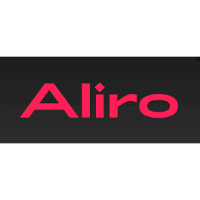
Aliro Quantum is a quantum networking company delivering Entanglement as a Service (EaaS) to enable the 100% secure networks of today and the quantum internet of tomorrow.
Working with industry and academic partners through the Quantum Economic Development Consortium (QED-C), the NSF Center for Quantum Networks (CQN), and the NSF Quantum Leap Challenge Institute Hybrid Quantum Architectures and Networks (HQAN), Aliro also partners with leading quantum hardware vendors including IBM, Honeywell Quantum Solutions (now Quantinuum), and Rigetti Computing.
“Powerful quantum systems such as those we are pioneering at Aliro will enable breakthroughs in energy, medicine, materials science and other novel applications we have yet to imagine.”
— Jim Ricotta, CEO & Chairman, Aliro Quantum
Based in Boston, Massachusetts, Aliro was founded as a spinoff from the NarangLab at Harvard University in 2019 by Michael Cubeddu, Prineha Narang and Will Finigan. To date, the company has raised $2.7 million in funding.
Visit company’s profile page.
4. Algorithmiq

Algorithmiq develops quantum algorithms with a focus on molecular structure prediction, drug development and materials design. The business is focused on finding an advantage in the NISQ era.
“Quantum computing is uniquely interesting and threatening to players in the biotech and pharmaceutical domain because new discoveries only need to be made once.”
— Guillermo García-Pérez, Co-Founder & CSO, Algorithmiq
Based in Helsinki, Finland and founded in 2020 by Sabrina Maniscalco, Guillermo García-Pérez, Matteo Rossi, Boris Sokolov, and Jussi Westergren, one interesting aspect of this new venture is it is heavily research-led with over 300 papers published as of May 2022, as well as having raised $4 million in funding to date.
Visit company’s profile page.
5. A Star Quantum
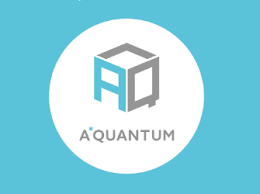
A Star Quantum is a provider of quantum computing software and is focused on logistics and advertising. Its development is based on both annealing and gate types, and the company collaborates with universities to nurture developers and provide coordination between companies. It also specializes in UI development for expanding the base of users.
Based in Tokyo, Japan, A Star Quantum was founded in 2018 by Hidetoshi Nishimori and Koji Funabashi and has raised nearly $3 million in funding, backed by Dentsu, Abies Ventures, Mitsubishi UFJ Capital, Plug and Play Ventures, NEC Capital Solutions, and NBC Angel Fund.
Visit company’s profile page.
6. Arqit
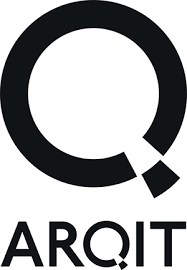
Arqit provides SaaS quantum encryption solutions, focusing on delivering symmetric keys at scale, so is arguably not a quantum computing software company. Nonetheless, we thought it interesting to include. The company has developed QuantumCloud, which enables organizations to strengthen their encryption, appliance-free. This allows movement from a complex PKI infrastructure and the need to trust third parties, to an encryption platform designed for the cloud and a world of connected devices.
Based in London, Arqit was founded in 2017 by David Williams and David Bestwick and has been selected by the UK Department for Digital, Culture, Media & Sport (DCMS) for a 5G project that integrates quantum encryption, enabling security by default.
“Our core focus will continue to be on innovation and advancing our QuantumCloudTM platform, aiming to reach every company, device and friendly country in the world with our products. While all industries need to keep data secure, we have a primary focus on governments/defence, telecoms, financial services and IoT as these sectors have particular vulnerabilities which could be exploited by quantum attacks.
We also intend to assist governments which are increasingly focused on improved security. For instance, we fully support the White House’s recent memorandum which urged U.S government departments to prepare for the quantum threat, noting that symmetric encryption was a suitable way forward. With Arqit offering symmetric encryption, we expect to see the market demand accelerate over the next few years.”
— David Williams, CEO & Founder, Arqit
To date, Arqit has raised an impressive $116 million in funding, backed by Centricus Acquisition Corp, Virgin Orbit, Sumitomo Corporation, Seraphim Capital, and others. In May 2021, Arqit went public via a Special Purpose Acquisition Company (SPAC) merger, raising $400 million.
Visit company’s profile page.
7. BEIT
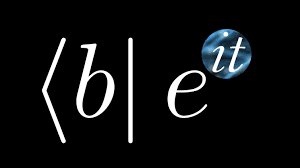
Based in Krakow, Poland, BEIT develops algorithms for solving NP-complete problems on quantum computers. Founded in 2016 by Paulina Mazurek, Witek Jarnicki and Wojtek Burkot, the company has raised $1.4 million in funding to date.
Visit company’s profile page.
8. BosonQ Psi
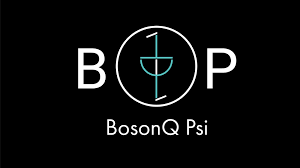
BosonQ Psi (BQP) is a SaaS-based enterprise software venture leveraging the power of quantum computing to speed up virtual simulations in Multiphysics and Computer-Aided Engineering (CAE).
Its BQPhy product is the company’s first quantum-powered cloud simulation software, specifically for enterprise customers, which is equipped with high-accuracy CAE solvers developed from the ground up by domain experts to deliver the quantum advantage. This has various use cases in advanced materials and structures, security, thermal analysis, and design optimization. Its solutions are offered across various industries as well such as the automotive sector, aerospace, energy, construction, pharmaceuticals, consumer goods, and electronics.
“We are building BQPhy, a simulation software, which has quantum algorithms embedded in it. It’s able to access the quantum hardware to give these simulations much faster, with much better accuracy and lowering the cost of the customer. I would say that the technology that we are working on is not just cutting edge — it’s bleeding edge.”
— Abhishek Chopra, CEO, BosonQ Psi
With headquarters in Bhilai, India, BosonQ Psi has raised approximately $500,000 in funding since it was founded in 2020 by Abhishek Chopra, Rut Lineswala and Jash Minocha.”
Visit company’s profile page.
9. Classiq
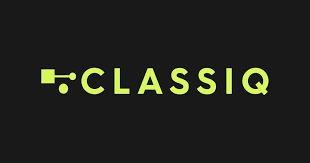
Classiq is an Israel-based quantum algorithm development company founded in 2018 by Amir Naveh, Nir Minerbi and Yehuda Naveh.
Classiq brings the quantum software stack to a new level of abstraction, empowering quantum software developers and enabling the development of world-changing quantum algorithms and applications. Through a customer-centric process, Classiq has developed a solution for customers to experiment with quantum algorithms faster by creating sophisticated circuits on the Classiq platform and seamlessly executing them on Amazon Braket, a fully managed quantum computing service from Amazon Web Services (AWS).
Based in Tel Aviv, Classiq has raised more than $50 million in funding to date.
Visit company’s profile page.
10. Dirac
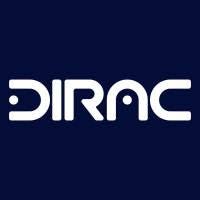
Dirac is developing new software and algorithms for quantum computers. Currently in stealth, rather than focusing on traditional algorithms/applications, this quantum computing startup is working on areas where quantum computers may be helpful in emerging technologies, especially in robotics.
Based in New York City, Dirac was founded in 2022 by Filip Aronshtein.
Visit company’s profile page.
11. Entropica Labs
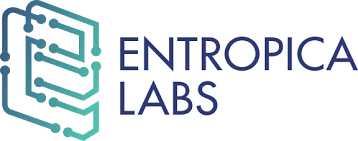
Entropica Labs develops software tools and variational quantum algorithms for optimization and statistical learning.
Based in the quantum hub that is Singapore, Entropica Labs was founded in 2018 by Ewan Munro and Tommaso Demarie and has raised $1.8 million in funding to date backed by the likes of Entrepreneur First and SGInnovate, respectively.
Visit company’s profile page.
12. Horizon Quantum Computing
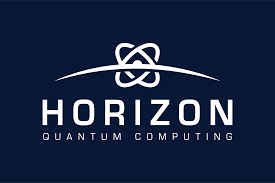
Another Singapore-based entity, Horizon Quantum Computing was founded in 2018 by Joe Fitzsimons and is developing tools to simplify and speed up the development of quantum software applications. The functionality of the company’s system includes a full compiler stack that will cover from algorithms construction down to physical level implementation.
“As a company focused on enabling users to create and deploy quantum applications, ensuring this can be done without compromising the privacy or integrity of those applications is a key concern for Horizon.”
— Joe Fitzsimons, CEO, Horizon Quantum Computing
Horizon has raised north of $15 million in funding over three rounds, the last one — a $12-million Series A round led by Tencent Holdings — coming in April of this year.
Visit company’s profile page.
13. HQS Quantum Simulations
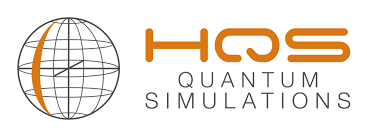
HQS Quantum Simulations is developing quantum algorithms to predict molecular properties for performance materials, specialty chemicals and pharmaceutical companies.
“We focus on using quantum computers to solve quantum mechanical problems.”
— Michael Marthaler, CEO, HQS Quantum Simulations
With headquarters in Karlsruhe, Germany, HQS was founded in 2017 by Iris Schwenk, Sebastian Zanker, Jan Reiner, and Michael Marthaler after nearly half a decade of research at the Karlsruhe Institute of Technology (KIT) in Germany. The company has raised more than $16 million in funding. The last one, a $13.5-million Series A led by Quantonation, was finalized in January of this year.
Visit company’s profile page.
14. JiJ

Based in Tokyo, Japan, JiJ is one of the few quantum computing companies that provides software to support quantum annealing, working on the development of applications and algorithms for practical use using annealing machines. It also offers consulting on annealing machines related to optimization technology.
Founded by Yu Yamashiro, JiJ has raised $2.2 million in funding since it was set up in 2018.
Visit company’s profile page.
15. Kuano

Kuano offers Quantum and AI Solutions for Molecular Design. Enzyme inhibition is one of the most common methods of action for both pharmaceuticals and crop protection agents, and Kuano’s unique approach to designing new inhibitors is to combine quantum simulation and machine learning approaches to create highly effective inhibitors based on the mechanisms of the target enzyme.
Based in Hauxton, the UK, Kuano was founded in 2020 by David Wright, Jarryl D’Oyley, Parminder Ruprah, and Vid Stojevic. To date, Kuano has raised $3.6 million in funding.
Visit company’s profile page.
16. Menten AI

Menten AI is based in San Francisco, California and was founded in 2018 by Hans Melo, Tamas Gorbe and Vikram K. Mulligan.
Leveraging synthetic biology, machine learning, and quantum computing to create new proteins not found in nature for diverse applications in the pharmaceutical and chemical industries, Menten AI claims its hybrid quantum-classical computing approach allows them to create new biology and overcome the scalability challenges that limit classical approaches.
The young company has raised $4 million in funding so far over three rounds, backed by Khosla Ventures, Uncork Capital, FoundersX Ventures, and Y Combinator.
Visit company’s profile page.
17. Multiverse Computing
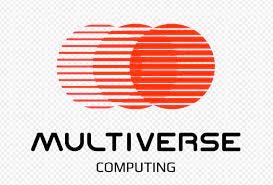
Multiverse Computing provides hyper-efficient software for companies in the financial industry wanting to gain an edge with quantum computing and artificial intelligence and is a mix between a consultant and software player, providing a SaaS service where it finds the most appropriate algorithm for the use case. In June 2022, Gartner named Multiverse Computing a 2022 ‘Cool Vendor’ in the space.
Based in San Sebastian, Spain, Multiverse Computing was founded in 2019 by Alfonso Rubio Manzanares, Enrique Lizaso, Mehdi Bozzo-Rey, Román Orús, and Samuel Mugel and has raised more than $25 million in funding to date.
Visit company’s profile page.
18. PolarisQb

PolarisQb is a Durham, North Carolina company founded in 2020 by Bill Shipman and Shahar Keinan. Aiming to use quantum computing, AI and precision medicine to search chemical space to create novel molecular drugs for specific proteins and diseases, PolarisQb has raised $2 million in funding from a Seed round led by OurCrowd in 2021.
“Quantum Computing technology is coming of age, allowing us to revolutionize drug discovery timelines, while improving the overall profile of the designed drugs. The application of Quantum Computers to solving these complex questions is extraordinary.”
— Shahar Keinan, CEO, Polarisqb
Visit company’s profile page.
19. ProteinQure
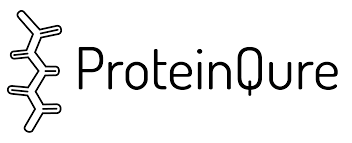
ProteinQure is building a computational platform for the design of protein therapeutics. Its technology combines computational biophysical models with statistical and machine learning approaches to enable it to search across vast spaces of protein therapeutics.
Based in Toronto, Canada, ProteinQure was founded in 2017 by Christopher Ing, Lucas Siow, Mark Fingerhuth, and Tomas Babej. To date, this startup has raised $4.6 million in funding with backing from Global Founders Capital, Felicis Ventures, Tom Williams, iNovia Capital, 8VC, Golden Ventures, Ramen Ventures, Creative Destruction Lab.
Visit company’s profile page.
20. QC Ware
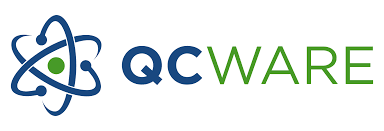
QC Ware provides enterprise applications for quantum computers. Its Forge offering gives developers access to QC hardware and simulators across vendors.
Based in Mountain View, California, QC Ware was founded in 2014 by Matt Johnson and Randy Correll and has raised close to $40 million in funding to date, backed by the likes of Samsung Ventures, Pegasus Tech Ventures, Fenox Venture Capital, D.E. Shaw Group, Citigroup, Goldman Sachs, and Airbus Ventures.
Visit company’s profile page.
21. Q-CTRL
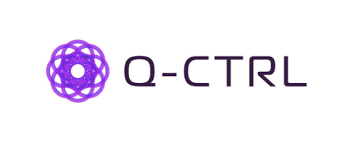
Q-CTRL offers software aimed at controlling quantum hardware to reduce errors. BOULDER OPAL delivers optimized, error-robust quantum controls for QC devices. Its Python package can be directly integrated with existing hardware to deliver better performance and reliability.
“Q-CTRL’s mission is to make quantum technology useful. From day one we knew that quantum sensing provided a near-term opportunity to translate our specialization in quantum control into value capture and new sovereign capabilities.”
— Michael Biercuk, CEO, Q-CTRL
Based in Sydney, Australia, Q-CTRL was founded in 2017 by CEO Michael Biercuk, a Professor of Quantum Physics at the University of Sydney. Since its founding, Q-CTRL has raised some $40 million in funding, backed by a whole coterie of VCs like Airbus Ventures, Sequoia, DCVC, and others.
Visit company’s profile page.
22. Quantastica

Based in Helsingfors, Finland, Quantastica provides software tools and solutions to help customers transition to hybrid quantum-classical computing. Its Quantum Programming Studio, a web-based graphical user interface for designing quantum algorithms and executing them on simulators or on real quantum computers, has been built in partnership with Rigetti.
Founded in 2019 by Petar Korponaić, the Helsinki, Finland-based young company has raised over $200,000 in funding to date.
Visit company’s profile page.
23. Quantum Benchmark
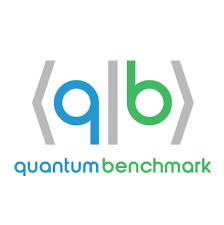
Quantum Benchmark is a provider of software solutions that enable error characterization, error mitigation, error correction, and performance validation for quantum computing hardware. Its core product is True-Q which helps QC designers speed up the hardware design cycle.
Based in Kitchener, Canada, Quantum Benchmark was founded in 2017 by Joseph Emerson and has raised approximately $1 million in outside funding.
In 2021, the company was acquired by Keysight Technologies, Inc. (NYSE: KEYS), a leading technology company that delivers advanced design and validation solutions to help accelerate innovation to connect and secure the world. Quantum Benchmark represents Keysight’s third acquisition in the quantum space after Signadyne in 2016 and Labber Quantum in 2019.
Visit company’s profile page.
24. Quantum Computing Incorporated

Quantum Computing Inc (QCI) is a cloud-based quantum software vendor, offering ready-to-run software for complex constrained optimization computations. The company’s flagship software solution is called Qatalyst, which allows programmers to use quantum techniques for better solutions. In May 2022, the business acquired QPhoton. QPhoton will be a wholly owned subsidiary of QCI and means that QCI now offers a full-stack solution for customers.
“It is central to QCI’s mission to deliver practical and sustainable value to the quantum computing industry. QCI’s innovative software solutions deliver expansive compute capabilities for today’s state-of-the-art QPU systems and offer great future scalability as those technologies continually advance. […]”
— William McGann, Chief Operating & Technology Officer, QCI.
Based in Leesburg, Virginia, QCI was founded in 2018 and so far has raised $4.8 million in funding.
Visit company’s profile page.
25. Quantum Generative Materials
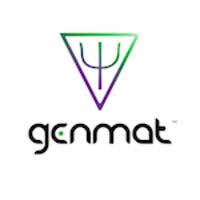
Quantum Generative Materials’ (GenMat) intended offerings will be industry agnostic when it emerges from stealth mode, Comstock Mining — which owns between 45–50 percent of GenMat — is focused on applications that accelerate the development of new clean technologies to address resource scarcity by facilitating climate-smart mining, electrification, and decarbonization using quantum-classical algorithms for material design optimization.
“Among other applications, we plan to use GenMat’s platform to enhance our extraction and refining of lithium and other scarce electrification metals, and then to design and produce dramatically improved battery components with those and other metals. Even then, we would be barely scratching the surface of the potential that quantum computing technologies offer. We’re looking forward to supporting GenMat’s development, and using our license rights to systemically maximize financial, natural and social impact for all of our stakeholders.”
— Corrado De Gasperis, Executive Chairman & CEO, Comstock
With headquarters in Wyoming, the US, GenMat has secured funding of $50 million, $15 million of that coming in July 2021 from Comstock Mining.
Visit company’s profile page.
26. Quantum Machines
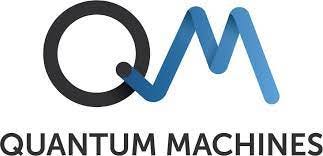
There are a few quantum computing companies like Quantum Machines (QM) that develop operational and control systems (both hardware and software) for quantum computers. QM’s Quantum Orchestration Platform is a hardware system developed for quantum and designed to meet the requirements of quantum control protocols, including complexity, timing, precision and ultra-low latency.
“One of the main pain points we’ve noticed for quantum control is that even with a good processor in place, researchers must devote a significant portion of their time to engineering their setups just to get to a point where they can actually begin experimenting. With the release of Octave, we’ve removed that engineering barrier, offering users a solution that integrates directly with our Quantum Orchestration Platform so that they can literally start right out of the box.”
— Itamar Sivan, CEO, Quantum Machines
Based in Tel Aviv, Israel, QM was founded in 2018 by Itamar Sivan, Yonatan Cohen and Nissim Ofek.
To date, the company has raised $73 million in funding. In March of this year, QM acquired QDevil which is now their new Auxiliary Electronics division.
Visit company’s profile page.
27. Qu & Co

Qu & Co provides specific algorithms and consultancy to support companies looking to implement QC for AI and Chemistry. As of mid-2022, it is planning to merge with Pasqal.
With headquarters in Amsterdam, the Netherlands, Qu & Co was founded in 2017 by Benno Broer and has raised over $100,000 in funding.
Visit company’s profile page.
28. QuantrolOx

An Anglo-Finnish spinout from Oxford University, QuantrolOx is building automated machine learning-based control software for quantum technologies to tune, stabilize and optimize qubits. Its software is technology agnostic and applicable to all types of quantum technologies; however, initially, the company is targeting solid-state qubits where the team has already demonstrated substantial practical benefits.
“In the world of quantum technologies, where data acquisition is expensive and the parameter space is large, it is a massive challenge to develop software to characterize and control qubits at scale.
QuantrolOx’s software addresses this challenge and will be a key component in speeding up the development and control of quantum technologies.”
— Vishal Chatrath, CEO, QuantrolOx
Based in Oxford, the UK, QuantrolOx was founded in 2021 by Andrew Briggs, Vishal Chatrath, Natalia Ares, and Dominic Lennon. QuantrolOx has raised $1.8 million in funding to date.
Visit company’s profile page.
29. Qubit Pharmaceuticals

Based in Paris, France, Qubit Pharmaceuticals is one of the only quantum computing companies developing a platform to accelerate drug discovery, using a mix of HPC and early-stage quantum computers by developing ATLAS, a software suite for the discovery and test of drug candidates running on supercomputers to co-design new drugs with pharma and biotech companies. ATLAS builds upon over 30 years of research.
“Qubit Pharmaceuticals is a bridge between the world of mathematicians and physicists who are developing high-speed computational tools based on quantum research, and the pharmaceutical and biotech industries in search of new drugs. By creating digital twins of molecules and simulating their behaviour, we are confident in our ability to become a globally recognized player in the development of new drugs in areas where unmet needs remain significant.”
— Robert Marino, CEO, Qubit Pharmaceuticals
Qubit Pharmaceuticals was founded in 2020 by Jay Ponder, Pengyu Ren, Jean-Philip Piquemal, Louis Lagardere, and Matthieu Montes. To date, the company has raised over $17 million in funding.
Visit company’s profile page.
30. QunaSys
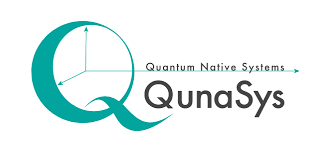
Qunasys has expertise in quantum algorithms and seeks to help clients find applications for quantum computing. The company has developed Qulacs, a high-speed simulator of quantum circuits for quantum computational research. It is written in C++ and has a Python interface. The business is seen as a pioneer in the space, having set up QPARC (a consortium of many global companies focused on practical applications of QC). Numerical simulations of quantum computers allow research into the performance of quantum circuits that real quantum hardware cannot support yet.
With headquarters in Tokyo, Japan. QunaSys was founded in 2018 and has raised $12.7 million in funding over three rounds, the latest — a $10-million Series B — coming in March 2022.
Visit company’s profile page.
31. Riverlane

Riverlane has developed a simulation engine for quantum systems. Its core product is DeltaFlow Virtual Lab. Deltaflow-VL is an emulator of the control stack for quantum computers. Exposing the full control stack, it allows quantum programmers and algorithm developers to test and implement applications that require fast control such as error correction and VQE-based algorithms. The company is also building Deltaflow.OS, as a common operating system for all quantum computers.
Additionally, Riverlane, along with ColdQuanta and the University of Wisconsin–Madison, have achieved multi-qubit entanglement and algorithms on a programmable neutral atom quantum computer.
“For a quantum ecosystem to thrive, we urgently need an operating system. An operating system makes quantum computers useful — it allows programs and applications to run on many different machines. Riverlane aims to make our operating system Deltaflow a global standard.”
— Steve Brierley, Founder, CEO, Riverlane
Riverlane is based in Cambridge, UK and was founded by Steve Brierley, a quantum physicist, Senior Research Fellow at the University of Cambridge and an expert advisor to the UK government. The company has raised more than $24 million in funding since it was founded in 2017.
Visit company’s profile page.
32. SandboxAQ

Palo Alto-based SandboxAQ is an enterprise SaaS company delivering solutions at the nexus of quantum tech and AI. It focuses on sensing, security and optimization, combining AI + Quantum tech to solve hard problems impacting society. Its novel solutions include post-RSA cybersecurity modules that migrate enterprises to higher levels of security, enabling post-quantum cryptography (PQC) in line with the new standards that are now emerging in this field.
A spinoff company from Alphabet (Google’s parent company), SandboxAQ was reportedly a passion project of Google founder Sergey Brin. Led by Jack Hidary the business raised $500 million in outside funding in March of this year backed by Section 32, Thomas Tull, Paladin Capital Group, Guggenheim Investments, T.Rowe Price, Eric Schmidt, Breyer Capital, Time Ventures, In-Q-Tel, Parkway Venture Capital.
“The value-add we [SandboxAQ] offer is the following: The discovery tool and the encryption modules all have our machine learning modules in them. Why machine learning? Is it just pixie dust we have to add to everything? No. The reason is that, coming out of the NIST process, we don’t have just one protocol: We have multiple valid post-RSA protocols.
For a large enterprise architecture, we need a control plane and a data plane, and we need to separate the control plane from the data plane. The data plane is the encryption plane. That’s where the encryption happens using the post-RSA protocols. The control plane is where the machine learning sits, to choose in real time the parameters and which protocol to use. Some protocols are faster, some are a bit slower, some offer a bit more security, some sufficient but a bit less. An ML model is necessary to make these real-time choices.
We offer a lot of value-add with our deep heritage of machine learning and our knowledge and expertise there, suffused with our understanding and deep expertise in quantum-safe cryptography. Bringing these two together, that’s where the value-add is.”
— Jack Hidary, CEO, SandboxAQ
Visit company’s profile page.
33. Strangeworks
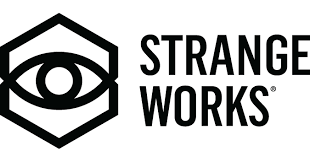
Strangeworks is an Austin, Texas-based new venture bringing the power of multiple quantum computers into a single platform, accessible to everyone. Its Quantum Computing Platform is a hardware-agnostic, software-inclusive, collaborative development environment that brings the latest advancements, frameworks, open source, and tools into a single user interface.
“There is no doubt a quantum future is coming. But we need to democratize the underlying technologies and focus on collaboration to make sure it’s a quantum future we all benefit from. No matter who wins the hardware race, we need the hardware-agnostic software to make these computers truly valuable. Making real use of quantum will come through collaboration, experimentation, and the sharing of discoveries. We need more people of all disciplines and skill sets to build a quantum future we can all participate in.”
— William “whurley” Hurley, CEO, Strangeworks
Founded in 2018 by William “whurley” Hurley, Strangeworks has raised $4 million in funding to date.
Visit company’s profile page.
34. Terra Quantum

Terra Quantum, is a Rorschach, Switzerland-based company that develops deep-tech applications based on quantum computing, hardware, software, and algorithms. Its core business is Quantum Algorithms As A Service (QAaaS), Quantum Compute As A Service (QCaaS) and Quantum Safety As A Service (QSaaS).
“The extension of our Series A and our remarkable breakthrough around negative capacitance only further illustrates our strong trajectory and commitment to leading the global quantum revolution. Terra Quantum is innovating in both the software and hardware space, building the foundation needed for quantum and nanodevices that will shape the future of our society. The applications of our research are endless, and we can’t wait to take the next steps to realize them.”
— Markus Pflitsch, CEO, Terra Quantum
The company was founded in 2019 by Markus Pflitsch, an entrepreneur and investor in quantum tech. Terra Quantum has raised $75 million in funding. The sole round, a Series A led by Lakestar, was completed in early 2022.
Visit company’s profile page.
35. Zapata Computing

Zapata Computing is based in Boston, Massachusetts and develops quantum software and algorithms for business. Its core proposition is Orquestra, which the company describes as the first unified quantum operating environment. This allows users to compose quantum-enabled workflows and execute them across classical and quantum technologies. The business also looks to actively help customers use quantum computers for real-world problems.
“What we showed [Zapata] in our papers is if you have a quantum source of bit strings that comes from that source of supremacy (think of the quantum computer a la Google), you get a better distribution and a better handwriting sample and a better portfolio optimization than you can with classical machine work. We can do that today.
So, what we’ve done is we’ve taken a quantum-enhanced neural network approach to basically put our quantum spy on that solver. We’re feeding into a classical neural network workflow that already exists and is already in production in a lot of places. The great thing is their cost function, their model, already exists too; we just put a little quantum spy on it. We think it’s pretty clever, and it’s patented, and very disruptive. We’re able to basically model the distribution of the good answers for any software.”
— Christopher Savoie, CEO, Zapata Computing
Founded in 2017 by Alan Aspuru-Guzik, Yudong Cao, Gregg Carman, Mimi Flanagan, Katherine Londergan, and Christopher Savoie, Zapata Computing has raised more than $67 million in funding.
Similar Posts throughout the Resonance Publishing Network:
- Top 10 Rocket Launch Companies To Look For in 2023
- 15 Most Exciting NewSpace Companies to Look Out for in 2023
- 17 of the World’s Top Metaverse Companies [2023 List]
- What is Metaverse? Guide into the Future of Digital Reality
Current QC Trends
Although using the word “trend” can be off-putting for some, particularly for those working in science and the hard tech sectors where researchers sometimes spend years, even decades, developing their ideas and IP, several trends in quantum computing are clear to see in 2022.
One is the idea that quantum-based encryption is a near-term realization. Worries that criminals are “harvesting data now ready to decrypt later” when we reach quantum computing functionality have got many companies and organizations prepared to turn to quantum-proof security alternatives for data transmissions.
Secondly, there are services providing quantum computing as a service (QCaaS). With the rise of the cloud and available platforms like IBM, Microsoft and AWS Braket, the quantum revolution is definitely underway.
Last, we have the quantum internet, designed to communicate by leveraging the spooky laws of quantum mechanics. Though it still could be some time away, experts in the field are openly talking about it, especially since China has made inroads in this vertical.
Quantum Computing Companies Summary
None-exhaustive as usual, the team at The Quantum Insider hopes Quantum Computing Companies: Ultimate List for 2022 has given you insight into some of the best, most well-funded quantum companies on the planet in the hardware and software sectors.
If you want to find out what’s new in the Industry, check out our latest quantum news.

